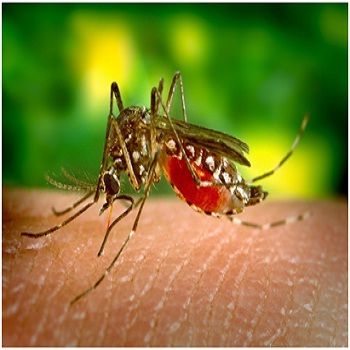Last updated on May 4, 2017
Travellers must now be vaccinated when travelling to Brazil due to a yellow-fever outbreak in specific areas. This alert was issued by Federal health officers.
In the alert, the Centre for Disease Control and Prevention stated that people may need to plan ahead as there is currently a shortage of yellow fever vaccinations. This outbreak has already caused an estimated 40 fatalities, although the World Health Organisation reports that the number could be as high as 80. It is stated that more than 400 people have been infected by the mosquito-related virus, although some cases could not be confirmed.
North of Rio De Janeiro, in the south-eastern state of Espirito Santa, Brazilian health officials have found that the outbreak is also affecting monkeys, with more than 400 recorded deaths. This is being regarded as the worst outbreak in Brazil since 2000. It has been reported that the virus is even affecting regions of Brazil that have remained unaffected for decades, increasing the risk that it could infect frequent travellers.
It’s highly advised that anyone older than 9 months who visits these destinations should be vaccinated for yellow fever.
Alongside this, it is also advised that people who have never been vaccinated for yellow fever should refrain fromtraveling to affected regions at all. In most cases, a booster vaccination is not needed if the individuals have been vaccinated in the past. However, in these circumstances, if you received your vaccinations over a decade ago, you may need a booster if planning to travel to these potentially high-risk areas.
Due to the unfolding outbreak, if you plan to visit Sao Paulo, Rio de Janeiro, Minas Gerais, Espirito Santo, parts of Bahia or surrounding states, you may want to organise yourself a booster vaccination if your previous one took place over 10 years ago. As a reminder, due to the current shortage of yellow fever vaccinations, you should consider contacting your vaccine supplier well before you plan to travel.
It is alsoadvised that people who are pregnant or suffer from a weakened immune system contact their doctors before getting the vaccine, as it can cause a number of side effects, some of which can be serious.
As a brief look into what yellow fever actually is, the virus is a relative strand of the Zika and dengue viruses but is renowned as being much deadlier than both. Usually carried by mosquitoes, it is known as the only virus in this family that has a tried and tested vaccine to fight it.
Unfortunately, the disease is unlikely to ever be eradicated, as it can host inside other animals such as monkeys, allowing for mosquitoes to become re-infected. The virus is spread by jungle inhabiting Haemogogus mosquitoes and by a variety of urban mosquitoes known as the Aedes species.
If you contract yellow fever, you may experience symptoms such as a fever, chills, backache, headaches and sometimes muscle aches. An estimated 15% of people who contract the virus are prone to developing hemorrhagic fevers, which can in turn lead to shock, organ failure and bleeding – all symptoms which sometimes can result in death.
Brazilian health officials are currently working tirelessly to ensure that the AedesAegypti mosquitoes found in urban areas are eliminated and that mass vaccination campaigns are successful. The World Health Organisation recently assisted in stopping a yellow fever outbreak in Angola and the Demographic Republic of the Congo in the middle of last year with a large-scale vaccination campaign. As the vaccine was limited even then, the doses had to be diluted. These diluted vaccines can affect a person extremely quickly, but the effects are limited to a shorter period of time.
It is advised that if you are travelling to regions that are infected with the Zika or dengue, you should help protect yourself from bites by getting yourself some effective mosquito repellent. The most effective formulas are ones that contains DEET, oil of lemon eucalyptus (OLE), picaridin, IR3535 or 2-undecanone, also known as methyl nonyl ketone.
You can further protect yourself by wearing long sleeve tops and long trousers. By using permethrin-treated clothing and equipment such as tents, socks and boots, you can help to ward off mosquitoes even further. It is possible to buy clothing that is already treated or treat the clothes yourself. The World Health Organisation has stated that the yellow fever outbreak is likely to worsen before it gets better.


















Be First to Comment